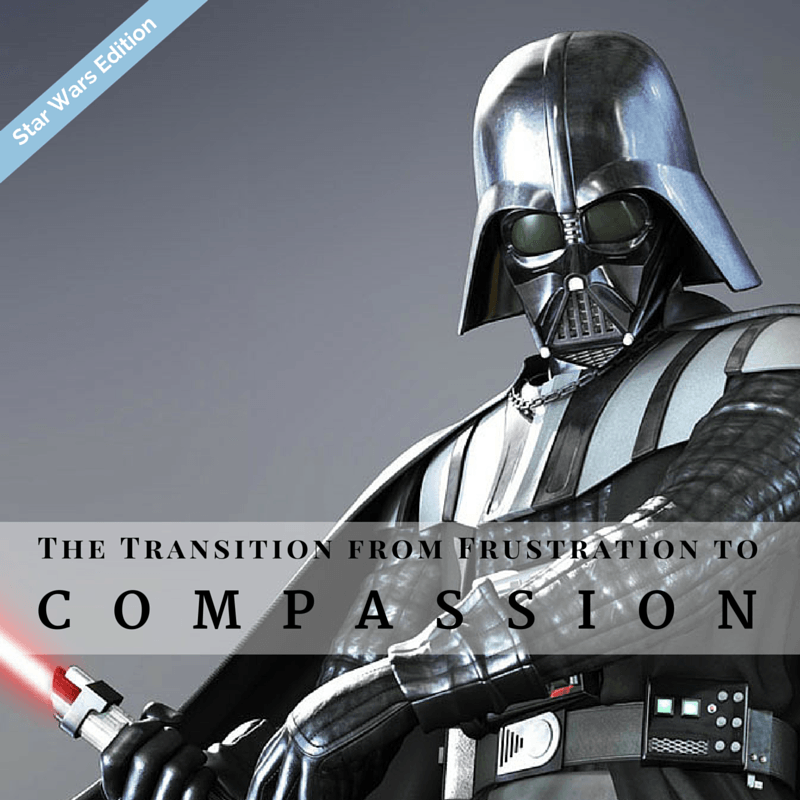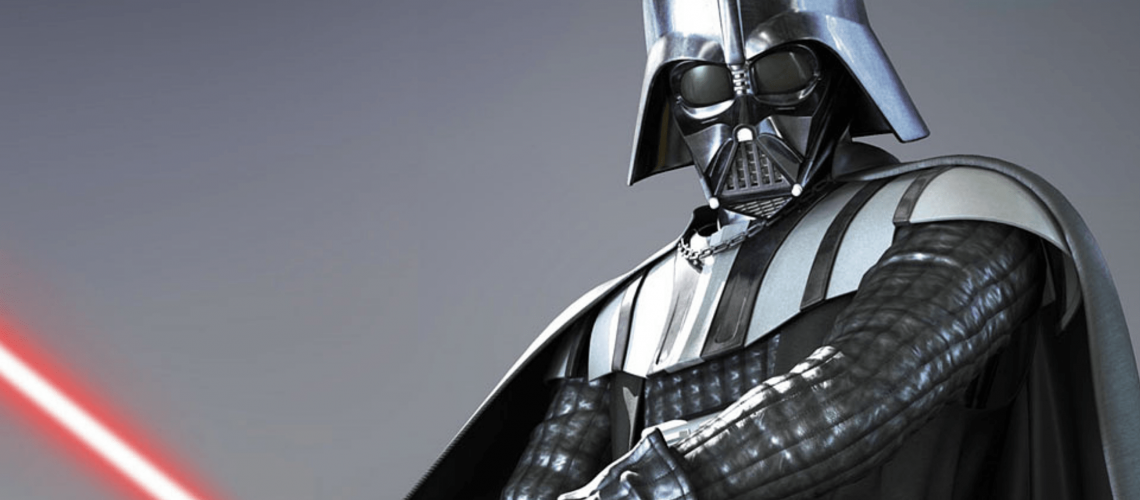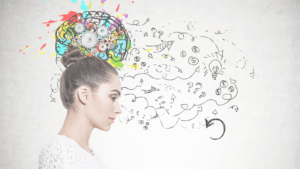
During vacation, I experienced a rare and precious treat. My son and I watched the original Star Wars with my father, who took me to see it when I was my son’s age. Every time I see the movie, I experience it in a new light, relative to on-going challenges and opportunities in life and leadership.
Over the last few weeks, I have had a number of conversations with members of my organization regarding the need to move past initial frustration to a place of compassion when interacting with others. While watching A New Hope, I realized that the transformation of Darth Vader provides a context for looking beyond the mask we all show to the world, to what is really driving the person underneath.
You may not agree, but I personally think there is no better introduction of a villain than in the original Star Wars movie. The small, rebel ship is swallowed up by the menacing imperial space craft and, soon after, the stormtroopers are running about, clearing the path for their leader. Vader walks in, with his black cape, robotic features, impressive entrance music, and that breathing. If there was ever an opening scene and villain meant to intimidate, the introduction of Darth Vader has it nailed.
Over the course of the next few movies, his evil persona is reinforced again and again. Whether it’s torturing his daughter, killing his own men when they make a mistake, or cutting off the hand of his son, this guy is just plain bad. For the better part of three movies, you are walked along a path that convinces you there is no greater evil in the galaxy (other than maybe the Emperor, but we are not provided as many glimpses into his awfulness as we are Vader).
That is why, when Star Wars III came out, I was so angry. Ask my husband – I was a wreck for weeks, much to his annoyance. I never really felt the connection between the small child in Star Wars I or the tortured teenager of Star Wars II and the evil being who would become Darth Vader. When Star Wars III came, I thought I knew what to expect. Who didn’t know that Anakin Starwalker would become Darth Vader? I knew it, but I didn’t expect to be so angry about it.
If I knew, why the anger? Because now I felt for him. He was a good kid. He loved his mother and Padme. He was happily married, even if secretly, and looking forward to the arrival of his children. But he lost his mother to violence and feared the same fate for his wife. In his efforts to protect her, he left himself open to the kind of fear the dark side feeds on, eventually turning a normal guy into a monster who nearly destroyed the Jedi.
When III was over, I insisted that we watch A New Hope immediately after. My greatest fears were realized. The villain was no longer so intimidating. Yes, he was still evil, but now I knew why and could only feel sorry for him. On some level, I became angry on his behalf, because it didn’t have to be this way. The great entrance that had struck fear in the hearts of men for years was reduced significantly once you knew how he became such a robotic monstrosity.
So what does this have to do with frustration and compassion? If you are interacting with someone who demonstrates less than admirable characteristics and behaviors, it is relatively easy to find yourself becoming frustrated. I challenge that their behavior is about them, not you. How you choose to respond to the behavior, however, is all about you. You can, indeed, be frustrated. Instead, I would ask that you take a few minutes to consider that person’s perspective and how they may have gotten to their current circumstances.
Most people are not as evil as Darth Vader. A very (very very) small percentage of the population finds enjoyment out of making others miserable. Instead, they are doing the best they know how, with potentially limited knowledge of the “right way,” have been rewarded over time for bad behaviors and therefore think they are okay, or any number of other reasons that have nothing to do with you personally.
For one moment, consider what might drive the individuals that fuel your frustration. The micromanager who is driving you crazy is being pestered by his manager and doesn’t know how to get himself, or you, some breathing room. The harried supervisor who seems to nitpick your every move has been promoted past her ability and lives in fear of failure every day. The internal customer who “doesn’t get it” may need more time to internalize recent changes to the organization and needs your help more than your irritation.
Luke felt the internal goodness of his father and refused to let Vader’s evil outward behavior convince him that his father was beyond saving. Ultimately, by witnessing his son’s willingness to do the right thing, to the point of sacrificing his own life, Vader turned from the dark side and saved his son. And himself.
I’m not suggesting that you bust out a light saber at work or anything, but rather to have an ounce of the insight and hope that Luke demonstrated. Consider what might be going on with the individual causing you frustration. Who knows? Maybe you’ll gain some perspective and realize that the individual could use your help more than your irritation. Maybe, just maybe, your compassion could make all the difference in their own transformation.








